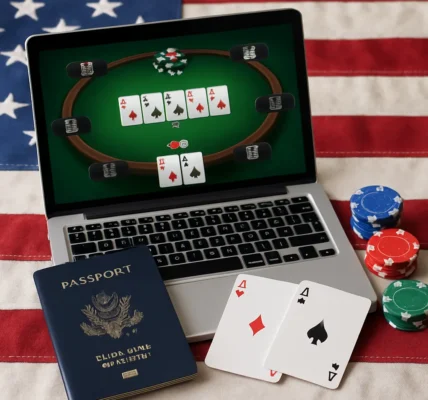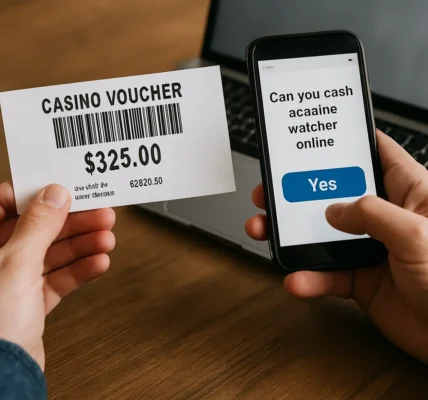Let’s just be real: If you’ve ever hung around a casino, even for a night, you’ve probably wondered just how much those dealers rake in—especially from tips. They’re cool, calm, dealing cards with theatrical flair, and some even throw in a little magic trick if you’re lucky. But is the “casino dealer tips” legend all it’s cracked up to be? Are these folks making bank, or is the glowing neon just concealing a more modest reality? Today, I’m pulling back the curtain and diving deep into what casino dealers really earn, focusing not just on salary, but the tips that can make or break their take-home pay. Buckle up—whether you’re dreaming of dealing cards or just curious before your next trip to Vegas, you’re in the right spot.
Understanding the Base Salary of Casino Dealers
So, first things first: what do casino dealers actually get paid before tips even enter the picture? I used to think they made a killing just from their base wage, but honestly, most are earning pretty average hourly rates. Base salary is what casinos officially offer—it’s what shows up on the check before taxes, and let’s just say, it’s not bringing anyone to millionaire status on its own. Depending on where you are in the country (or the world!), a dealer might be looking at roughly minimum wage or a smidge above it.
Here’s the kicker though: the size of the paycheck can swing pretty wildly. Some dealers in glitzy Vegas spots can see higher base pays, but not by much. Usually, the real magic happens when those chips start getting tossed their way as tips. But before we get ahead of ourselves, let’s break down what a dealer’s base salary might actually look like in a couple of different spots.
Average Base Salary Across Different Regions
It’s wild how location changes everything, not just in casino life, but for pretty much any job. When I chatted with a few dealer friends (one in Vegas and one actually in Atlantic City), the numbers didn’t shock me, but the difference did. Generally, in the U.S., dealers might make anywhere between $7 to $12 an hour before tips. On the West Coast, you’re probably getting closer to that $10–$12 range, while Midwest and South, it’s often just above minimum wage.
Internationally, it can be a whole different vibe. In parts of Europe or Asia, base salary can be higher due to strict labor laws, but tipping isn’t as big of a thing—so overall, their dealer salary is more predictable but sometimes less lucrative. Here’s a quick look at what you might see across a few big casino regions:
| Region | Average Base Salary (Hourly) | Tipping Culture |
|---|---|---|
| Las Vegas, USA | $8–$12 | Very strong |
| Atlantic City, USA | $7–$10 | Moderate |
| London, UK | £10–£14 ($13–$18) | Low to moderate |
| Macau, China | 75–100 MOP ($9–$12) | Low (tips often not expected) |
| Monaco | €12–€17 ($13–$18) | Minimal |
As you can see, base salaries don’t exactly sparkle, which is why tips make all the difference. In fact, for U.S. dealers, it’s not uncommon for the majority of take-home income to come from tips. And that brings us to the fun stuff…
Factors Influencing Base Salary
Now, you might be asking, “Why such a range in dealer salaries depending on the place?” Several factors shake things up. Clearly, state or national minimum wage laws dictate a big chunk of it. But, it also comes down to casino type—classy, high-end casinos (think Bellagio) often pay a tad more than your smaller, local haunts. In fact, corporate casinos usually have stricter policies and uniform payscales, while family-owned or tribal venues can sometimes underpay or overpay depending on their budget.
Experience is a biggie, too. If you’ve been dealing since the era of flip phones, you’re almost certainly making more than Sharon who just finished dealer school last week. Certifications and multi-game versatility help bump up that base, but not as dramatically as you’d hope.
The shifts you work (nights, weekends, holidays—hello, tough schedules) and union status can also play a role. I know a guy in New York who swears he only stuck with graveyard shifts because of a tiny pay bump, and hey, those crazy night owls do tip a little better. At the end of the day, though, it all forms the foundation—tips are what make this whole gig worth it.
Tips as a Significant Income Component
OK, let’s get to what you’re dying to know—just how much do casino dealers make in tips? I asked around, dug into stories, and poked into all sorts of dealer forums. The word is unanimous: tips are everything. For many dealers, tips easily double or even triple their paycheck.
But how does this all work? It’s pretty different from, say, waiting tables or bartending. In most casinos, tips aren’t just pocketed by the individual dealer—many places “pool” tips so they’re shared among everyone on shift. There are always wild stories of big tippers, too—and those nights can really make a difference over the course of a month.
Why Tipping is Crucial for Casino Dealers
Seriously, if it wasn’t for tipping, I doubt many folks would last more than a week on the casino floor. Casinos set base pay at near rock-bottom because they fully expect tips to fill the gap. In Vegas, tips are actually written into the expected income on job applications (which I still think is kind of cheeky). And with casino dealer tips often being cash, it means a daily shot of extra income that feels a bit more tangible than waiting for a paycheck.
Dealers pretty much have to hustle for their wallets. How you chat to players, whether you keep the game moving and—let’s face it—your ability to build a friendly vibe, all influence your tip totals. Some nights, you might barely scrape by, and then suddenly, someone walks in on a heater and throws you a stack. Swings are wild. That unpredictability keeps things exciting, but can also make financial planning for dealers a bit of a mess.
Average Tip Earnings in Various Locations
How much are we talking here? Well, like everything with casino life, it depends on a million things: the game you’re dealing, which shift you’re on, your clientele, the specific casino’s rules…the list goes on and on. But if we’re getting down to brass tacks, I’d say this:
On a regular night in a mid-tier Vegas casino, a dealer could see anywhere from $100 to $300 in tips per shift. Fancy high rollers’ events? Some dealers have walked out with $700 or even more. Meanwhile, quieter casinos or small local places, it might average closer to $40–$80 a night. Internationally, it’s all over the map. In London or Monaco, tips aren’t as customary, so dealers lean far more on their base salary. Here’s another thing—weekends and big holidays can be bonanza time for tips, so many dealers practically live for those shifts.
Let’s spell this out a bit more with a list of factors that influence how much you might rake in from casino dealer tips:
- Type of Casino: High-end and tourist-heavy casinos will almost always see bigger tip numbers than the local joints.
- Shift Timing: Nights, weekends, holidays—and during major sporting events—are prime earning times.
- Table Game: Poker dealers often see bigger and more direct tips, while craps and blackjack can depend more on pooling.
- Personality: Seriously, the friendlier and more entertaining you are, the higher those tips tend to go.
- Clientele: Tourists are generally more generous than regulars who come in just to grind the tables.
So, when you read online someone pulled in thousands in casino dealer earnings from tips in a month—it definitely happens, but it’s not the everyday norm for every table.
How to Increase Your Tips as a Casino Dealer
I’ve always been curious about what separates a dealer making average tip money from one who’s totally killing it. Turns out, it’s not just about luck (although, let’s be real, that never hurts). Little things add up. I actually asked a few seasoned dealers for advice, and here’s what came up time and again: it’s all about connection and efficiency.
Not every dealer wants to be the life of the party, but a genuine smile and remembering regulars’ names works wonders. Moving the game along at a pace that keeps people excited—without a ton of downtime—also means more chances for players to win and tip.
Here’s a rundown of the best ways to earn more tips as a casino dealer, if you’re thinking of giving this gig a shot:
- Be friendly—but authentic. Players know the difference between fake and real.
- Keep the game fun. A joke here and there, a story, or just a bit of excitement goes a long way.
- Stay quick on your feet. Nobody likes a dealer who slows the action down (unless they’re winning…sometimes).
- Learn regulars’ preferences. “Back for more, Larry?” goes further than you think.
- Handle losses gracefully. If you’re a good sport when players lose, they’re more likely to tip you when they win.
- Brush up on multiple games. The more valuable you are to the casino, the better shifts you’ll land—with better players, and bigger tip pools.
- Never hustle for tips—let your personality and skills do the talking.
You’d be amazed: some dealers who barely say a word but deal at lightning speed still crush it because players love the no-nonsense approach. There really is no single “tipping guide” to follow, so adapt and watch what works best in your own casino.
Influences on Total Earnings for Casino Dealers
The grand total in your pocket at the end of the month depends on all sorts of weird, interlocking factors. It’s honestly part art, part science. Like, two dealers in the same casino could make wildly different money—one’s cleaning up on the poker floor, the other’s stuck on quiet roulette tables five nights a week.
And yeah, the casino’s size and reputation make a huge difference, as does your own. Word gets around pretty fast in dealer circles about which venues—and shifts—really deliver on casino income. The “luckiest” dealers I’ve met are almost always the ones who’ve hustled hardest to get those coveted shifts.
Impact of Casino Size and Location
Not going to lie: working at a massive tourist hotspot beats a sleepy roadside casino for tip potential, almost every time. The more people coming through, the greater your odds for generous winners and bigger swings in earnings. I’ve met dealers who moved cross-country simply because casino location impact was so real—they’d double their tip totals by working in Vegas strip joints compared to small Midwestern casinos.
There are definite trade-offs, of course. Bigger casinos often have stricter rules, more competitive coworkers, and sometimes, more complicated tip-pooling systems. Sometimes you get “lucky” when you draw a seat at a high-roller table, but some dealers grind it out for years before getting those dream shifts.
Here’s a snippet from a chat I had with a pal who relocated to Vegas: “Same skills, totally different money. A slow week here tips what I’d make in a month back home.” That’s just how wild casino dealer earnings can swing when you switch addresses.
Role of Experience and Reputation
Another biggie: dealer income factors like your rep and years in the biz can mean the difference between scraping by and making serious bank. Seasoned dealers get first dibs on prime shifts and primo tables. Let’s not forget, regulars love returning to a table where they feel lucky—so if you’ve built a good vibe, that’s like free money walking through the door.
Recommendations and good word-of-mouth matter. If management hears that guests are consistently happy at your table, you’re already ahead. I’ve even heard stories of dealers who got poached by nicer casinos just based on player feedback. And yes, more experience often means you can pivot between games—poker to blackjack, craps to roulette—making you way more valuable (and in line for a fatter envelope at the end of the night).
Of course, there’s still no guarantee you won’t get a string of bad luck with quiet shifts or tough players, but having a strong rep definitely stacks the deck in your favor.
Common Misconceptions About Casino Dealer Earnings
Let me tell you, there are some huge myths out there about what casino dealers pull in. If you’ve ever watched a mob movie or hung out with someone who claims to know a “deep insider,” you’ve probably heard some wild stories. And yeah, sometimes there’s a sliver of truth, but mostly, those stories are just that—stories, with a lot of exaggeration thrown in.
As with any job, dealer pay can vary a lot, and it’s rarely the get-rich-quick gig people make it out to be. Don’t believe everything you read online! Time to break down what’s real and what’s total bunk.
Debunking Myths Around the Industry
Myth #1: All dealers are making six figures. Uh, not even close. Sure, there are superstar stories—but it’s way, way less common than you might think. Most dealers, even with tips, are bringing home a pretty working-class living.
Myth #2: Dealers can pocket all their tips and not report them. The IRS would like a word. At least in the U.S., tips count as taxable income—casinos have to track and report it, and if you mess around, you could see some nasty fines.
Myth #3: Only personality matters. Skills still count. If you drop cards, slow down the game, or come off rude, tips will vanish fast no matter how many jokes you tell.
Honestly, the biggest misconception is that casino life is easy money. While it can be an exciting way to make a living, you’re on your feet all day (or night), dealing with rowdy crowds and sometimes tough management. But yes, if you hustle and get a few breaks, the tips can still make it all worthwhile.
Truth vs. Speculation
I’ve seen folks online swear they know a dealer who pockets $1,000 a night in tips. While it’s not impossible (especially with huge whales at certain tables), it’s rare. Typical dealer income is much more modest, and often, big tip nights are chased by quieter shifts where you’re lucky to clear fifty bucks.
Also, “pooling” tips changes everything. While you might think hustle = more cash, team pooling means that even slower dealers share in the pie (which has its pros and cons). It’s one of the realities nobody tells you when you first start out.
And let’s not forget, a surprising number of newer dealers burn out fast. It’s not all glitz and glamour, and only the ones who really enjoy the player interaction seem to stick around for the long haul.
Conclusion: Maximizing Casino Dealer Income
So, is being a casino dealer worth it? Like most jobs, it really depends—on where you work, who shows up, what kind of energy you bring, and yes, straight-up luck. While dealer salary by itself usually won’t get you far, casino dealer tips definitely have the power to transform an okay paycheck into something special.
My best advice if you want to maximize your own casino dealer earnings? Treat every shift like it could be your best. Learn every game you can, make friends with regulars, and focus on adding a dash of fun and authenticity to your tables. Expect some slow shifts, but don’t get discouraged—it’s a marathon, not a sprint. Don’t just believe the hype about casino income. Talk to real dealers, try different casinos, and always stay humble enough to learn on the fly.
To wrap up, let’s remind ourselves:
- The combination of base salary and tips decides your real take-home, not one or the other.
- Location, skill, and vibe matter as much as hours worked.
- Staying sharp, friendly, and open-minded will help you earn more tips and enjoy the job.
- Ignore the Hollywood stories—most casino dealers are smart, skilled professionals making a solid, but not outrageous, living.
- Always report your tips and take care of your health—casino life can be demanding!
So, next time you see that ace dealer spinning the wheel with a grin, remember—they’re not just there for the glitz. They’re hustling, night after night, for every chip (and every tip) they can get. If you ever find yourself on the other side of the table, maybe leave a little something for them; after all, they just might have helped make your night a bit luckier.








